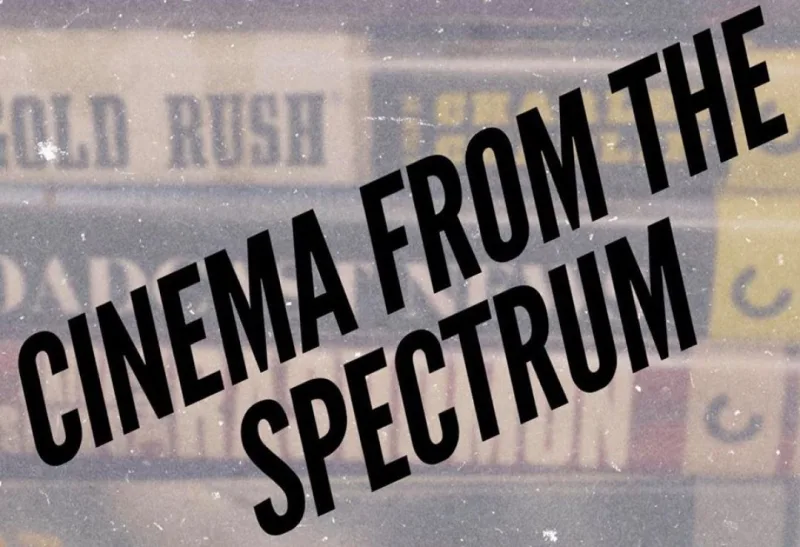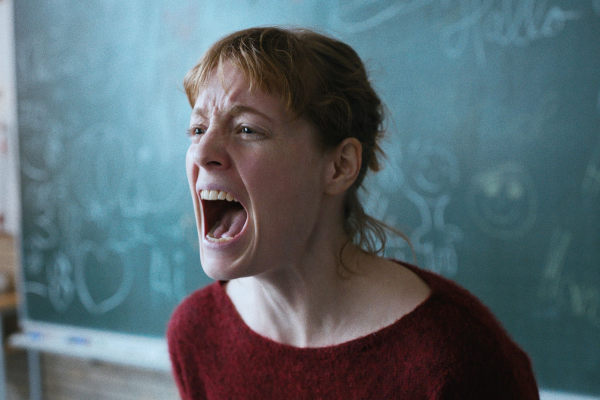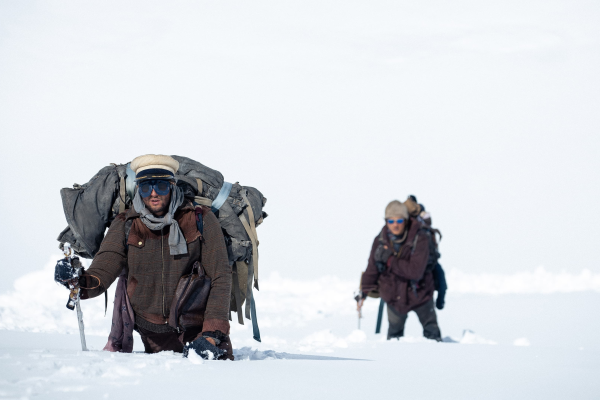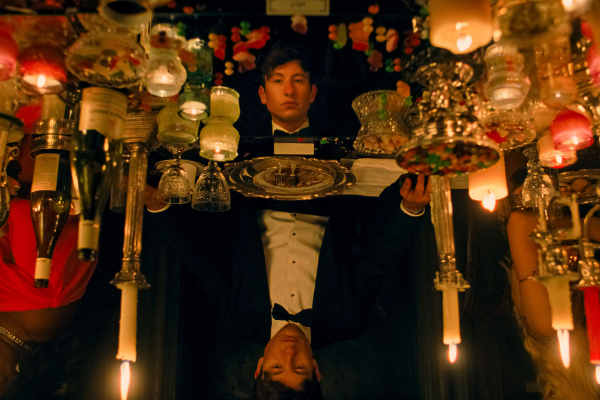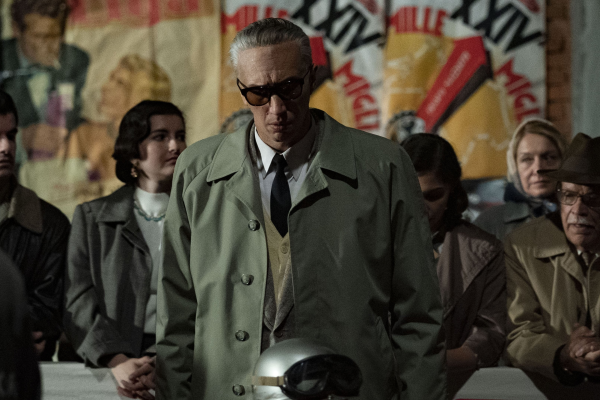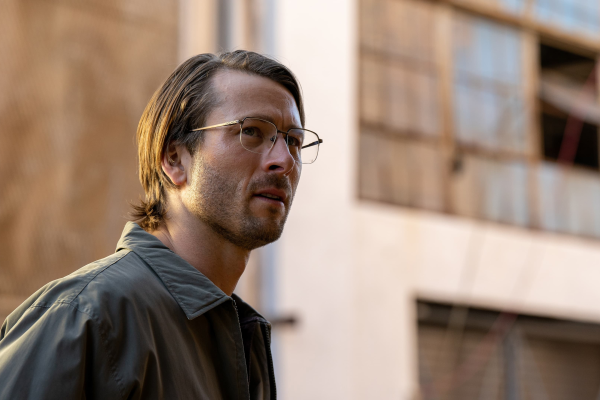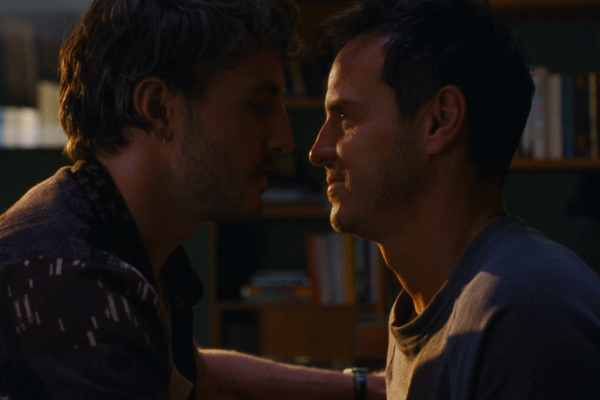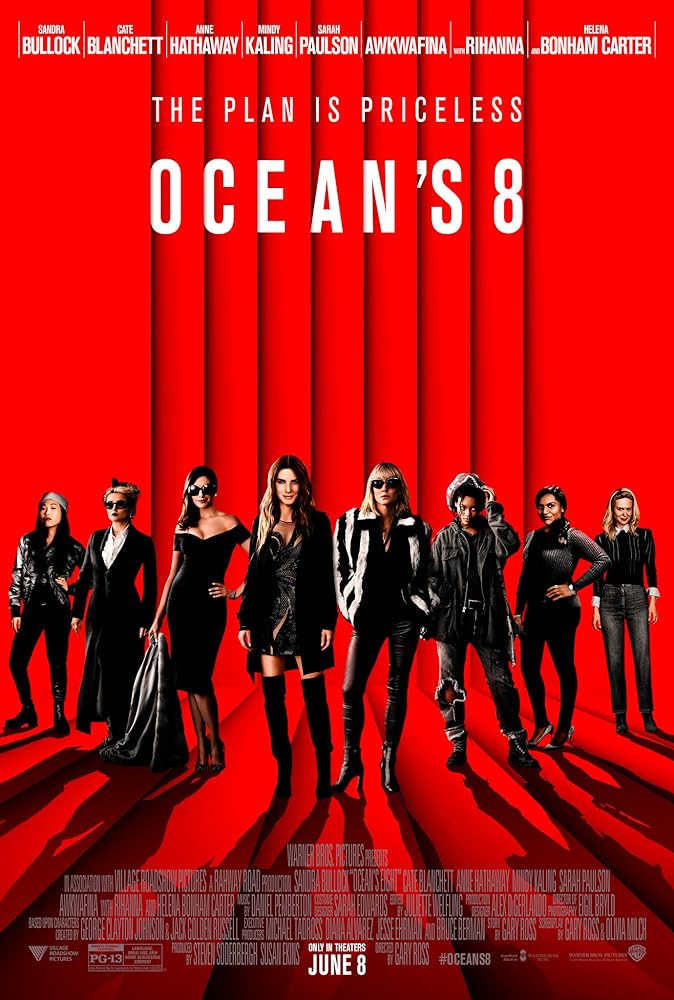Folks, you know what this is, you know what it’s about. It’s late, I’m tired, and I want to enjoy what’s left of my time off. Let’s rock and roll.
Actually, wait, I should open with a caveat: I live in the suburbs and have been a little busier than usual this year, so there are plenty of movies I haven’t seen that might have made this list if I was able to carve out the time or otherwise had means to get to them. So my apologies to: Assassination Nation, Beautiful Boy, Ben Is Back, Blindspotting, Boy Erased, Can You Ever Forgive Me?, Colette, Destroyer, Fahrenheit 11/9, The Front Runner, The Hate U Give, If Beale Street Could Talk, Mary Poppins Returns, Mary Queen of Scots, The Oath, The Old Man and the Gun, Roma, The Sisters Brothers, Suspira, Thoroughbreds, White Boy Rick, Whitney, and many others.
Also, how about some runners up?
25 – 11
25.) Mandy
24.) Upgrade
23.) Searching
22.) A Star is Born
21.) Mission: Impossible – Fallout
20.) First Man
19.) Revenge
18.) Black Panther
17.) You Were Never Really Here
16.) Annihilation
15.) Mid90s
14.) Won’t You Be My Neighbor
13.) Hearts Beat Loud
12.) Eighth Grade
11.) Disobedience
Yeah, Disobedience was a hard one to lose in this list; it’s strong, empathic filmmaking set in a world we don’t see too often, shot through with a whole lot of love for its subjects. But searching my heart, I felt like…well, it just didn’t connect with me the way these next ten films did.
…
…
…my God I’m about to light what little credibility I have on fire

10.) Ready Player One
Ready Player One works on a couple of levels. On one, it’s a striking exaggeration of our current world, where corporations are tacitly running the show, everything seems to be getting worse, and we can’t help but seek refuge in entertainment; more specifically, the past, in times when things didn’t seem so complicated or horrific and we just had to worry about never missing an episode of G.I. Joe or Jem and the Holograms. Rather than condemning our fixation on this brand of bread and circuses, Steven Spielberg celebrates our love of and need for escapism, showing it as a way for loners and outcasts to relax, recharge, find common ground, and ultimately organize against forces that would change the world for the worse. This isn’t always a good thing; the last few years on Twitter have taught me that too many white people think the world is worse off with blacks, Latinxs, Asians, Muslims, Jews, and women with opinions, and it turns out they’re pretty good at organizing. But it’s become common for science-fiction to highlight the evils of our fascination with technology—what’s up, almost every episode of Black Mirror?—so it’s refreshing to see a movie that’s excited about the possibilities of technology despite being cognizant and cautious of its drawbacks.
On the other, it’s a bit of self-reflection for Spielberg as well, who grew from a geeky, socially-awkward kid with a strong fixation on movies into a man responsible for so many other people’s passions. As he hits that age where trades start pre-writing obituaries for people, it’s hard not to compare him to the autistic-coded James Halliday, reflecting on the things he may have missed out on and gently warning those who might worship him not to go down the same path. The films he directed are rarely (if ever) referenced here, but it’s little wonder that a film which embraces the wonders of a virtual life and the joys of human connection builds one of its key set pieces around a film made by one of the director’s best friends.
Admittedly, the film has problems originating back to the inherently consumerist and ultimately chauvinistic source material. (The chauvinism was mainly in the romance between leads Wade/Parzival and Sam/Art3mis; it was smartly refigured for the movie but subtle traces still exist.) It was enough to make me consider leaving the film off the list and giving it a Maguire, but in the end, I feel like this is a deeply if understandably misunderstood film that says more about our world and ourselves than “Gee Robert Zemeckis was cool” (especially if you’ve been paying attention to some of the abhorrent fall-of-Rome shit that “AAA” video game publishers like Electronic Arts, Take-Two Interactive, and Ubisoft are up to), and it’ll ultimately be an important point of fascination for anyone studying Spielberg’s significant body of work.

9.) Game Night
We can talk all we’d like about the important films of the year, but a well-made, rip-roaring comedy will always bring us together and leave a big impact regardless of whether or not it’s secretly “about” anything. Game Night has The Stuff; I’ll put it up there with Animal House, Ghostbusters, The Blues Brothers, Groundhog Day, Anchorman, The Hangover and others any hour of the day, any day of the week, any month of the year. It is brilliant, hysterical, and compulsively rewatchable, and it’s got just as much to do with how John Francis Daley and Jonathan Goldstein direct the film as it does with the talent in front of the camera (including a breakout performance from Billy Magnussen and a no-shit Oscar-caliber one by Jesse Plemons) and the funny lines in the script.
Daley and Goldstein smartly make the filmcraft part of the joke, eschewing the flat cinematography and bouncy music that comes standard with most studio comedies in favor of a legit action-thriller score from frequent Steven Soderbergh collaborator Cliff Martinez and a dark Fincher-inspired look that’s alternately grimy and pristine—I wouldn’t be at all surprised to hear that Daley, Goldstein, DP Barry Peterson (21 Jump Street), and production designer Michael Corenblith (Frost/Nixon) studied the hell out of The Game or The Social Network during pre-production. Along with some appropriate-yet-surprising casting—including Kyle Chandler in a wonderfully against-type turn and Danny Huston in a glorified and quietly glorious cameo—this grounds the film’s tangible life-or-death stakes in a way that enhances the absurdity of its antics. A game of Keep-Away with a Faberge Egg might sound like a fun scene on its own, but it’s elevated to unexpected heights when it’s shot/edited as a oner in a gorgeous mansion set backed by a propulsive electronic score.
Most if not all of the other films on this list have something to say about our world or ourselves; all of them bet big and went the extra mile to say it. Game Night goes big in its own way, and while the result is merely fun, it’s in no way disposable. Game Night is going to be a tradition for a lot of people, and I’m betting will be viewed as just as vital to 2018 as Caddyshack was to the year of Ordinary People and Return of the Jedi.

8.) Widows
Between his effusive review from TIFF and his unapologetic stanning of Elizabeth Debicki, this will likely be one of the few films my list has in common with Jaime’s. I’ve had my own review of the film sitting in my drafts folder for over a month now, but I’ve never been entirely happy with it. I’ll probably try again with a more spoiler-filled breakdown shortly after the film’s home release.
For now, it’s enough to say that Steve McQueen’s first genre exercise, adapting Lydia La Plante’s BBC series with screenwriter/novelist Gillian Flynn, is methodical, patient, and quietly complex. It uses the heist film structure to paint a powerful portrait of modern patriarchal rule; how men are poisoned by it and how women survive under it, for better or worse. It also finds room to touch on race relations and power dynamics in the Black Lives Matter era, and the general growing divide between rich and poor. Shamefully, this is the first film of McQueen’s I’ve seen, but it’s a hell of an introduction, as he demonstrates an astonishing level of control over a slow-paced narrative in a genre that’s normally known for snappy banter and/or regular intervals of wanton violence. And damn if it doesn’t do my heart good to see long-underrated actresses like Debicki and Michelle Rodriguez get roles that make full use of their individual skillsets, while Viola Davis and Colin Farrell do their reliably outstanding work and Cynthia Erivo and Molly Kunz deliver some strong calling-card performances of their own.
Strong, searing, and deeply intelligent, Widows is a must-watch.

7.) Bodied
Bodied, the new film from Detention director Joseph Kahn, takes a sports underdog story and applies it to the world of battle rap in a way that turns the traditional narrative on its head. Its protagonist, Adam Merkin (Calum Worthy, American Vandal), is both hero and villain, a directionless young man whom many of us have been able to relate to at one point or another who wants to understand something that he’s probably not supposed to understand; specifically, “Gee, why do battle rappers get away with saying the ‘N’ word a lot? If I, a college-educated white man, said it, my life would be ruined, but for Them, it’s just another word!” His fascination gets him pushed into an impromptu battle, where he utterly destroys his opponent and garners interest from local battle rap organizers. Suddenly, this white college student from the highly politically correct UC Berkeley is thrust headlong into the highly politically incorrect world of battle rap, setting up a full-throated attack on performative wokeness and forcing the viewer to confront their own fascinations with transgression.
Kahn has to walk a tough line here if you’re a liberal-minded person like myself; political correctness is a target-rich environment, but it’s also regularly lit up by sociopaths and angry baby boomers, so hitting those targets inevitably draws some unwanted comparisons. Personally, I think Kahn does an admirable job demonstrating how basic decency is and isn’t related to political correctness, and in showing the difference between advocating for said decency and trying to score points off of someone else’s moral failings, all without falling back onto unearned sentimentality. Adam’s journey ends up costing him everything, but how much of what he lost was worth holding onto when he didn’t truly believe in much of it? On top of that, how much should he have believed in? The answers are not as clear cut as you’d expect; once the credits roll, you might have a lot to chew on.
And yet, even with everything going on under the surface, it can still be enjoyed as a rousing, hilarious, R-rated sports underdog movie that’s backed by Kahn’s phenomenal eye (assisted here by DP Matt Wise) and Worthy’s incendiary lead performance. Bodied is loud, crass, and not at all for the faint of heart, but underneath all that, it’s sharp, thoughtful, and deeply refreshing.

6.) Spider-Man: Into the Spider-verse
It’s one thing for the movie to be a smartly written, engaging and emotional take on an origin story whose major beats we pretty much know by heart at this point. Phil Lord’s self-aware sense of humor (that he normally shares with writing partner Chris Miller, who sits this one out) is in full effect here, and as usual, it feels less about trying to be hip (a fate that befell many of Lord/Miller’s imitators, like Baywatch) and more of a natural part of the story’s charm. Telling the story of Miles Morales is cool enough; what makes it fascinating is how Miles’ story is supported by the handful of other Spider-Men that cross into his universe, a few with fascinating arcs of their own, without ever forgetting who the star of the show is supposed to be. And it uses that crossover to get at a very important point about the appeal of Spider-Man, one that Miles’ story alone wouldn’t have been able to fully get across: “Anyone can wear the mask.”
And if that was all this movie did, that would be plenty. But it just so happens that this film is remarkably designed; I mean the look of this thing is just astonishing. Into the Spider-Verse brings the medium of animation forward in ways only the most ardent believers in the medium could have imagined. Lord and Miller are clearly believers, as are directors Bob Persichetti, Peter Ramsey, and Rodney Rothman. And whatever they do next, I’m all about it.

5.) Paddington 2
This is hands down the happiest, purest, most huggable film of the year and possibly even ever. Paddington 2 is so sweet and wholesome and downright winning, from its charming recap in its opening moments to its dynamite mid-credits musical number, that I had to fight back a pang of guilt every time I ranked a movie ahead of it. I’ve thrown serious side-eye in the direction of anyone who calls this movie “just okay.” It is magnificent, bursting with enthusiasm, and damn near guaranteed to leave you smiling no matter your mood.
Anything else I have to say would just be filler. The only other thing that needs to be said is that the world needs more movies like this.

4.) Vice
I had certain expectations of what I was going to see based on director Adam McKay’s previous film, The Big Short, as well as his long history of railing against Republican politics and on Jaime’s review of the film. I had some other expectations based on the extremely divisive overall reception the movie’s been getting within the critical community, that maybe the film was too preachy or talked down to its audience. I squeezed this movie in at the last possible second, thinking that this could either make my top ten or pick up a consolation Maguire for its effort.
Nothing prepared me for what I saw.
The big thing McKay nails here is that he resists the temptation to turn Cheney into a cold, diabolical supervillain for most of the movie. As played by Christian Bale, Cheney’s a loving father who’s able to cast his politics, and politics in general, aside once his daughter comes out as gay. The film even has the balls to suggest that if George W. never asked Cheney to be his VP, he might not have turned out so bad.
But that’s not the world we were lucky enough to live in…and even STILL, there’s a sense that for all of Cheney’s disagreeable views on governance and power, for all the ways he arguably changed this world for the worse, for all the pain and suffering he inflicted on others in his position, be it directly or indirectly, McKay can’t help but admire the son of a bitch. Bale is magnetic in the role, for reasons beyond an extraordinary makeup team; he’s quiet, calculating, choosing his words carefully and waiting for the right openings to make his move. He really does seem to be playing nine-dimensional chess while the people around him are absorbed in their intense little games of hopscotch. And it’s kind of fucking upsetting how amazing it is to watch; it’s hands down the best performance of the year.
But rather than use this humanity and political genius to paint a fair and balanced portrait of Cheney, McKay weaponizes whatever begrudging respect he might have inspired and uses it to damn the former VP and obvious war criminal even more thoroughly than an easy “Cheney Bad” characterization would have done. Beyond that, McKay deploys the same playful edge he brought to The Big Short to thoroughly explain the complicated depths that Cheney sunk to. In particular, the breakdown of how he and his crew positioned themselves to essentially puppetmaster the entire Executive Branch is one of the most propulsive scenes of the year, with no small assist from editor Hank Corwin (who also cut The Big Short and happens to be Terence Malick’s go-to guy).
The Big Short was a huge surprise from the Anchorman director. Vice proves it wasn’t an accident; Adam McKay is a force to be reckoned with.

3.) A Wrinkle in Time
Selma was my favorite movie of 2014 and introduced me to Ava DuVernay as a director I needed to watch. Admittedly, I haven’t done such a good job of that; haven’t seen her first two films (I Will Follow, Middle of Nowhere), haven’t seen her TV show (Queen Sugar), haven’t seen her Netflix documentary about the prison system (13th). But I was excited to hear that she landed a big Disney tentpole and could not wait to hear what she could do with a $100M budget.
I did not expect her to go completely buck-wild and turn in what is essentially an art film that throws several wordy concepts at you with machine-gun quickness that essentially all boil down to “Good and evil are tangible forces, love will save the world.”
To many, that was probably ridiculous and saccharine. To me, that’s just freakin’ awesome; it helps that while I don’t think such a sentiment is literally true, it’s nonetheless important to carry with you, especially as the kind of young person this movie is aimed at. I rewatched this film thinking that maybe I was soft on it and I missed something that other critics saw, something that would make this not work as well as it did when I saw it in theaters. There were a couple of things I wished were different: A couple of the needledrops stood out a little too much. Deric McCabe’s performance (as Meg Murry’s adopted brother, Charles Wallace) falls into that unfortunate “obnoxious kid brother” archetype that’s not always pleasant to watch.
In the end, none of that mattered. As soon as we’re introduced to Mrs. Who this movie just takes off for me and doesn’t choke once. The sheer ambition and nerve of it all is enough to astonish, but the execution is sublime. There’s a story here, but DuVernay takes her time making sure you understand the concepts that are driving this story, keeping the pace slower than one might be prepared for. The final result, however, often feels more like visual poetry than a narrative slog. and the images DuVernay creates and presents with these ideas are utterly breathtaking. I ultimately found myself appreciating the slow pace, just to have time to take in everything I was seeing and realize “THIS IS SO COOL.”
DuVernay called a hell of a shot with this one, and damn if it didn’t connect with me. Once again, I’m psyched to see what she does next—in this case, a Netflix miniseries about The Central Park Five. If I’m smart, maybe this time I’ll look at the work she’s already done while I wait.
I had to think long and hard about these next two movies. Their positions on the list switched from moment to moment as I weighed the merits of each one back and forth. Eventually, I came to a decision: A tie in these lists may seem like a cheat, but when two films are as complimentary as these are, it’s the only thing that seems natural.
Listed alphabetically:

1.) BlacKkKlansman [Tied]
On one hand, here is a veteran filmmaker and provocateur wrestling with the sudden surge of populism and fascism on American soil in levels we never saw before, even if people like him always suspected it might happen. Spike Lee is pissed in a way he’s rarely been since his Malcolm X days, and he takes what might be a cute satirical comedy about a black police officer infiltrating the Ku Klux Klan and flips it into a tense (if fictionalized) police thriller, a powerful examination of how hatred presents itself and poisons others, and a vicious polemic against the ways that hatred continues to propagate today. Unlike most movies about how racist people were in the past, Lee will not allow you to leave the theater thinking “Thank God things aren’t like that anymore,” and if he has to use the footage of Heather Heyer’s murder to do it (with her family’s blessing), by God, that’s what he’s going to do.
However, he also balances out this rhetoric with a celebration of blackness, as seen through the montage of beautiful black faces throughout Kwame Ture’s speech and little moments of levity like the “Too Late To Turn Back Now” singalong. Lee also wrestles a bit with the difficult relationship between the police and the black community, ultimately suggesting that while the police need reform, we still need them. At the risk of oversimplifying things, this sentiment famously got him into trouble a few months ago with the director of…

1.) Sorry to Bother You [Tied]
Like BlacKkKlansman, Boots Riley’s film has some things to say about the state of American society. But whereas Lee has a few decades of work under his belt, this is Riley’s first film after a long and celebrated rap career with The Coup. And while Lee’s film targeted hatred and how it warps people’s minds, Riley opts to go after the whole crooked capitalist system—of which, by his socialist perspective, the police that Lee tacitly supports are very much a part of.
Riley’s inexperience behind a camera is clear, but it’s the best thing the film has going for it. Nobody, not even Lee in his prime, would have the balls to take what starts off as a modern riff on Putney Swope and turn it into something I refuse to spoil even all these months later. Suffice to say, Riley’s satirical wit is sharp and deadly, and while there’s a sense that he’s barely in control of his narrative, it’s ultimately part of the film’s scrappy and furious appeal.
Ultimately these two films work in concert with each other to paint a scathing and honest picture of where civilization is at today, blinded by the suffering of others through hatred and greed. More importantly, it also shows how we’re getting through it; with a lot of willpower and no small amount of humor.
Thanks for reading! If you’re interested, you can check out the full ranking of the 2018 movies I saw on my Letterboxd page. And don’t forget to come back to check out Jamie’s top 10, which will apparently be published sometime next week.
All in all, 2018 was a solid year for movies; here’s to an even better 2019!
